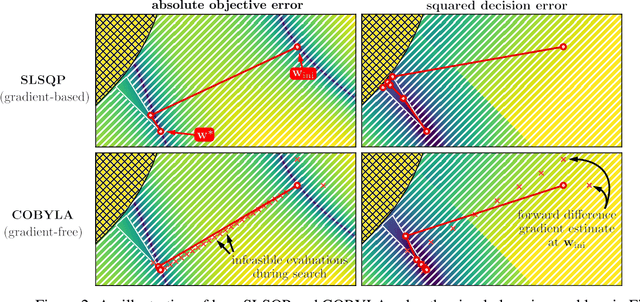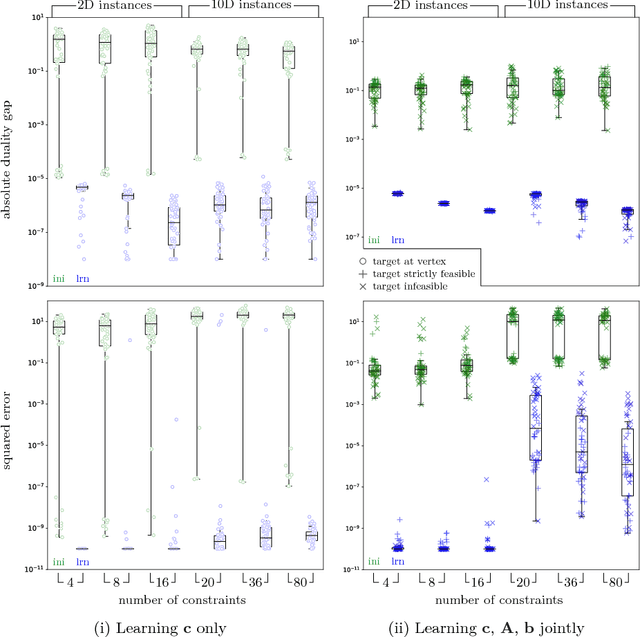Yingcong Tan
Learning Linear Programs from Optimal Decisions
Jun 16, 2020



Abstract:We propose a flexible gradient-based framework for learning linear programs from optimal decisions. Linear programs are often specified by hand, using prior knowledge of relevant costs and constraints. In some applications, linear programs must instead be learned from observations of optimal decisions. Learning from optimal decisions is a particularly challenging bi-level problem, and much of the related inverse optimization literature is dedicated to special cases. We tackle the general problem, learning all parameters jointly while allowing flexible parametrizations of costs, constraints, and loss functions. We also address challenges specific to learning linear programs, such as empty feasible regions and non-unique optimal decisions. Experiments show that our method successfully learns synthetic linear programs and minimum-cost multi-commodity flow instances for which previous methods are not directly applicable. We also provide a fast batch-mode PyTorch implementation of the homogeneous interior point algorithm, which supports gradients by implicit differentiation or backpropagation.
Deep Inverse Optimization
Dec 03, 2018



Abstract:Given a set of observations generated by an optimization process, the goal of inverse optimization is to determine likely parameters of that process. We cast inverse optimization as a form of deep learning. Our method, called deep inverse optimization, is to unroll an iterative optimization process and then use backpropagation to learn parameters that generate the observations. We demonstrate that by backpropagating through the interior point algorithm we can learn the coefficients determining the cost vector and the constraints, independently or jointly, for both non-parametric and parametric linear programs, starting from one or multiple observations. With this approach, inverse optimization can leverage concepts and algorithms from deep learning.
 Add to Chrome
Add to Chrome Add to Firefox
Add to Firefox Add to Edge
Add to Edge